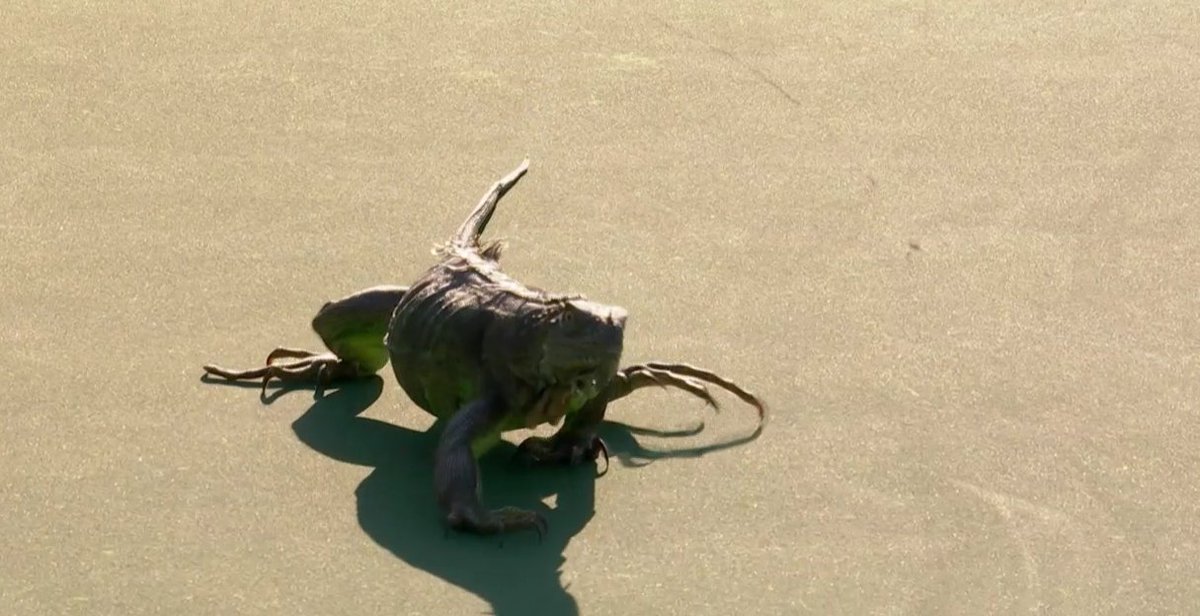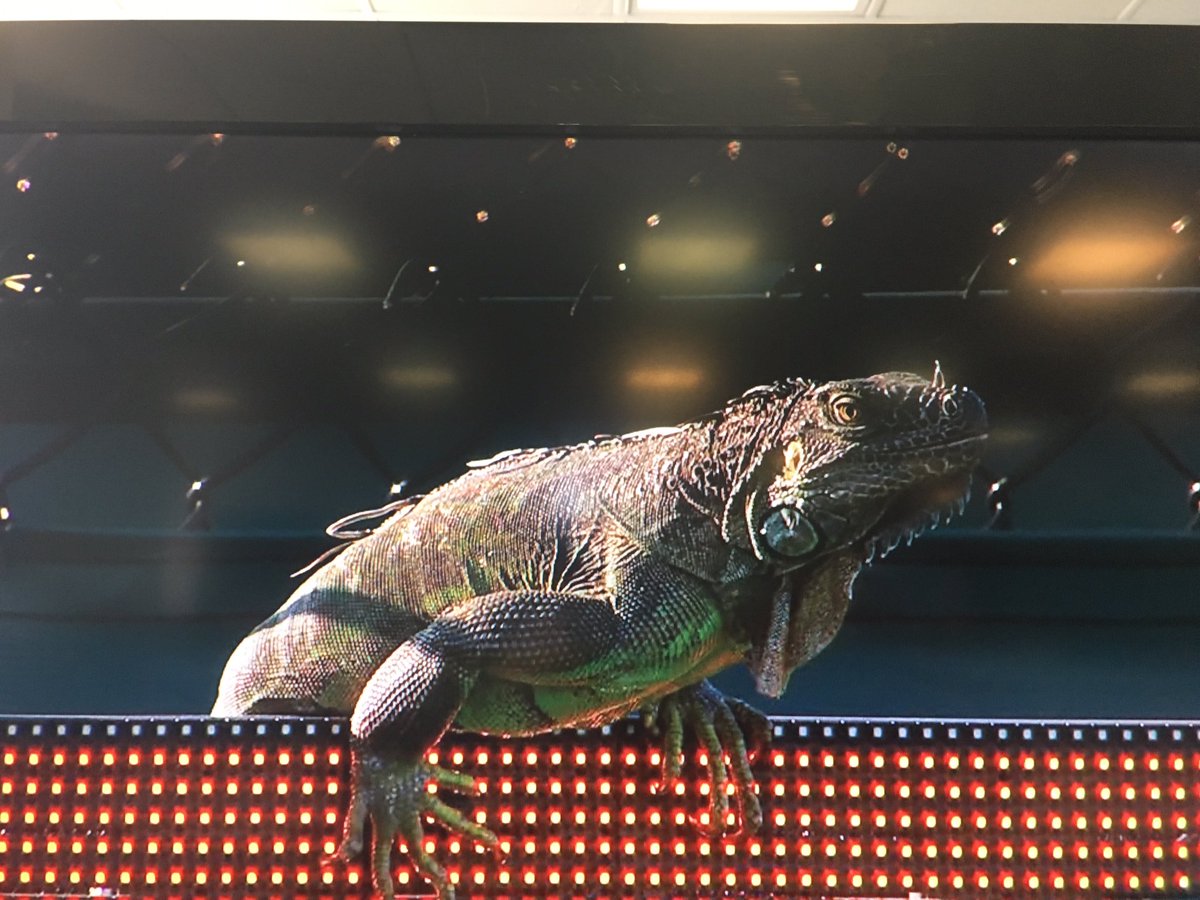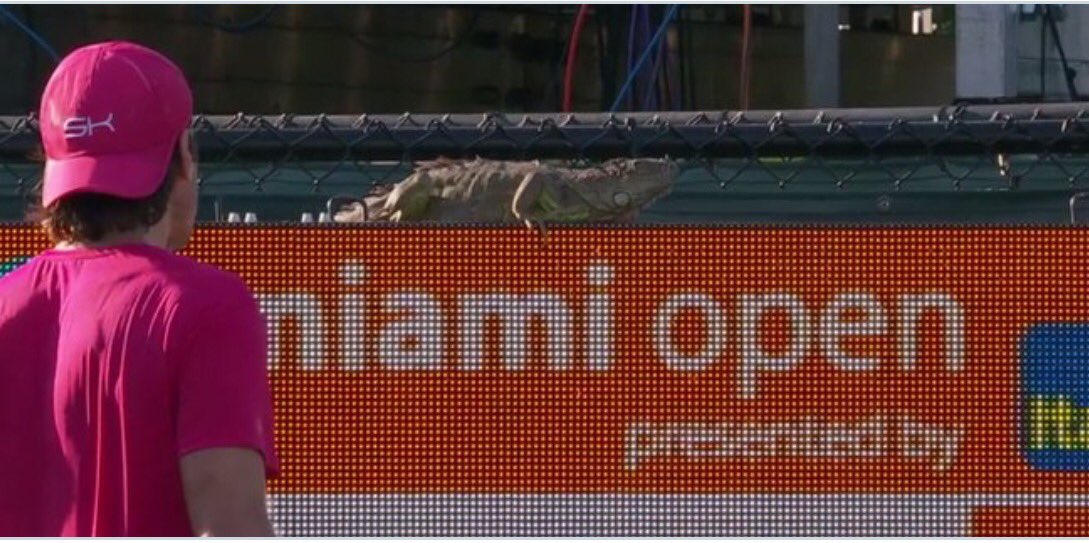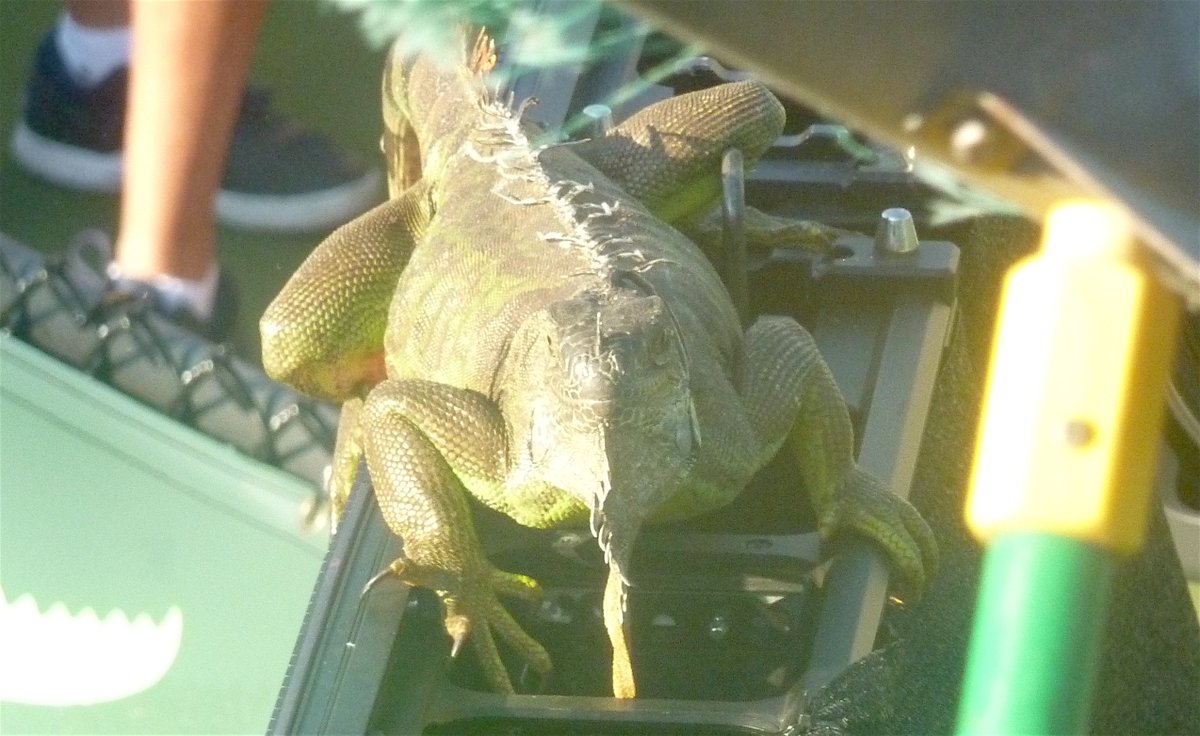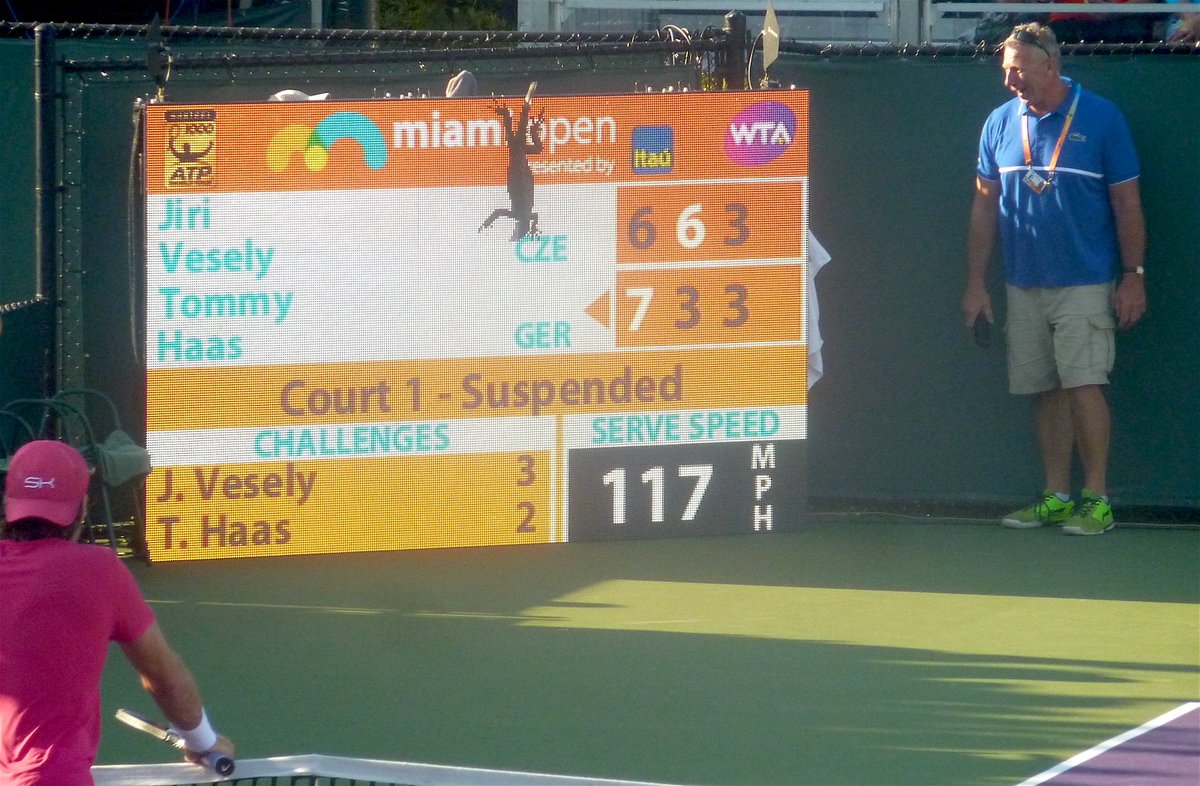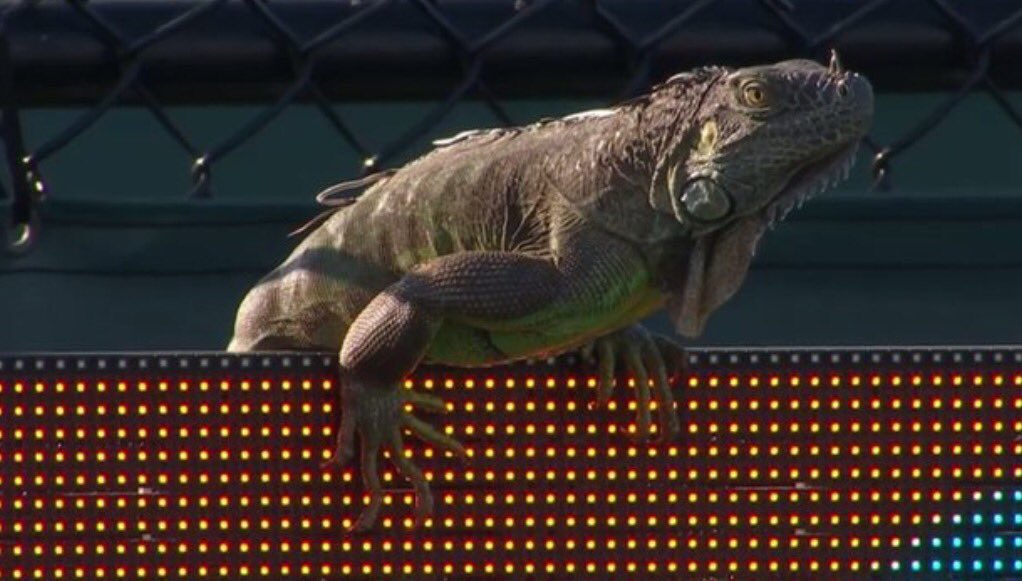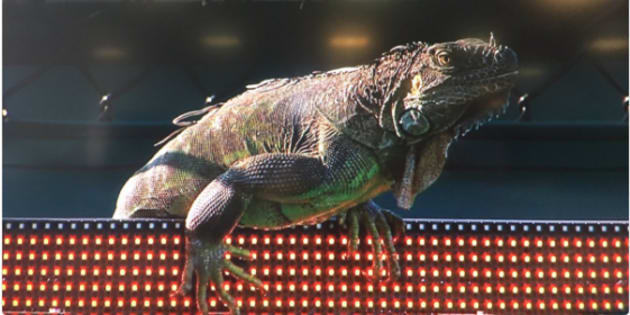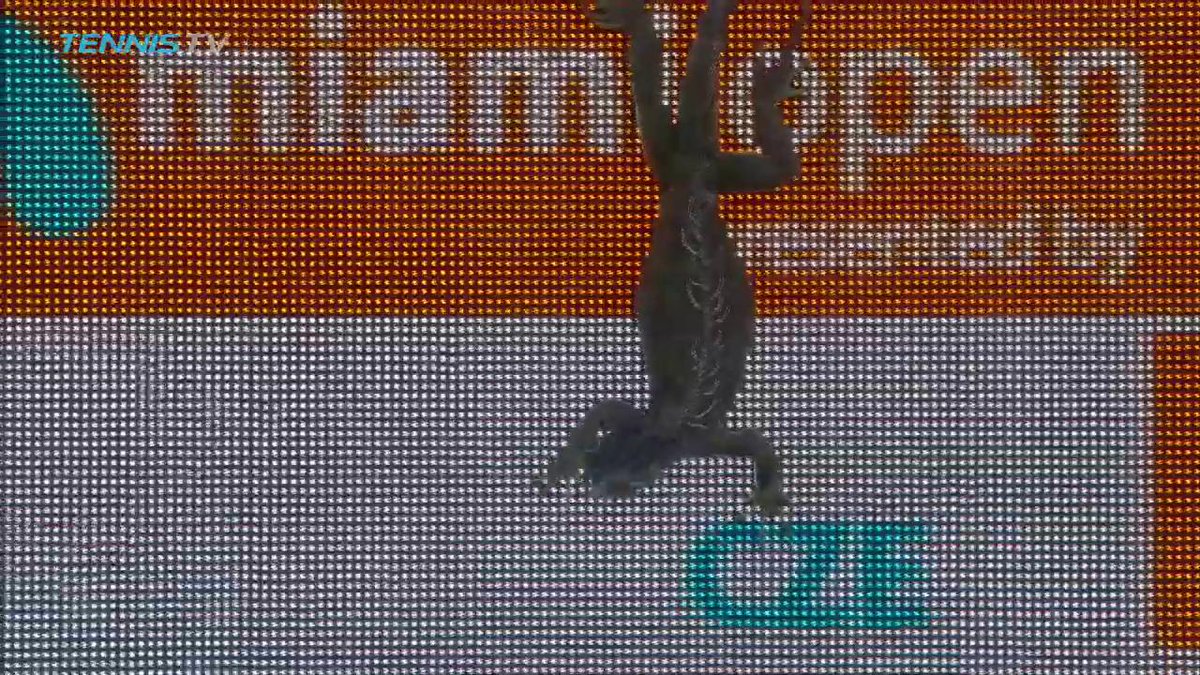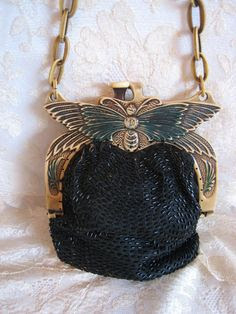
This four-foot long
Argentine tegu was dropped off at Mike Hopcraft's facility in early
November. The sick lizard struggles to eat, drink and walk; it makes a
gagging gesture after a sip of water. Two vets and many medical tests
have not determined the cause.
— image credit: ALINA KONEVSKI/THE ABBOTSFORD NEWS
Overloaded facility proves need for
local reptile rescue
by - Abbotsford News
posted Jan 3, 2014
When Mike Hopcraft opened his reptile rescue, education,
and sales center in Abbotsford in Nov. 2012, he had eight red-eared
slider turtles in the large artificial pond. The Reptile Guy now has
over 80 as people keep depositing their unwanted turtles – as well as
lizards, snakes, tarantulas, and any other cold-blooded creature – on
his doorstep.
"These are the ones that people buy when they're little tiny turtles
in pet stores, about the size of a quarter, and people don't realize how
long they live, how big they get, how dirty they are," said Hopcraft.
Sliders live over 50 years. Although cute when small, they grow
quickly to a foot long and start requiring more frequent cleaning and
larger enclosures. That's when some people bring them to
rescues like The Reptile Guy, or dump them in city ponds like Mill Lake.
With the many reptile surrenders, Hopcraft has outgrown his
new 1,300 sq. ft. facility in the first year. But he won't stop accepting animals.
Instead, he is fundraising $75,000 for a new building where he will
construct a "gigantic turtle pond" and much larger enclosures to welcome
all stranded reptiles. For instance, his mean-looking snapping turtle
named Muffin is about a foot in diameter now but will grow to 150
pounds, as will the two giant tortoises roaming a small sandy pen at the
current site. All need larger and separate enclosures.
"This is not going to do for much longer at all. We got 240 animals
in the first year. We're not looking to close down anytime soon, so the
animals are going to keep coming in. We need a bigger space," he said.
Only a handful of rescue facilities accept reptiles in the Lower Mainland.
"Once it was known that we had an actual location and more people
started finding out about us, the number of animals coming in just went
right up," said Hopcraft.
The reptile industry is growing rapidly, he says, but knowledge of
how to care for the animals and what to expect as they grow is still
lacking. Hopcraft accepts reptiles no questions asked, and frequently
receives animals sick and disabled after basic care wasn't followed.
The Reptile Guy has launched
an Indiegogo campaign
to cover the cost of a new building. He recognizes he's unlikely to
meet the hefty price tag through this campaign alone, as supporters have
pledged just $525 by Dec. 31, with 13 campaign days remaining.
Hopcraft is no stranger to the uphill financial battle. He
shut down his previous rescue site in 2011 after
new government regulations prohibited him from displaying his animals and dried up his revenue source. Last year, he opened the current site after
heavy public campaigning.
He is determined to find the funds for a new building, especially as
he risks losing ownership of his American alligator and two Burmese
pythons. Because Hopcraft doesn't have a large enough space, another
agency is on contract until May 2014 to house these exotic animals. But
it's unclear what will happen by that deadline if Hopcraft is unable to
meet the requirements to reclaim them.
Hopcraft's long-term goal is to obtain a zoo licence and have the
facility as a full-time education and visitor centre. He already takes
his reptiles to schools, but the current space is too small to
accommodate student groups.
He is also trying to reduce the number of reptiles that end up in bad
homes. People can adopt some of his animals, but – like the SPCA – only
if they meet strict requirements, and not everyone does. A potential
adopter for a bearded dragon lizard recently walked out after an
argument on the necessity of an ultraviolet light for the enclosure.
In an effort to reduce the slider population in Abbotsford, Hopcraft unsuccessfully
campaigned city council last summer to
restrict their sale
because the turtle has become an invasive and destructive species in
city parks and ponds. Meanwhile, he continues to receive sliders from
people who didn't think the initial purchase all the way through.

